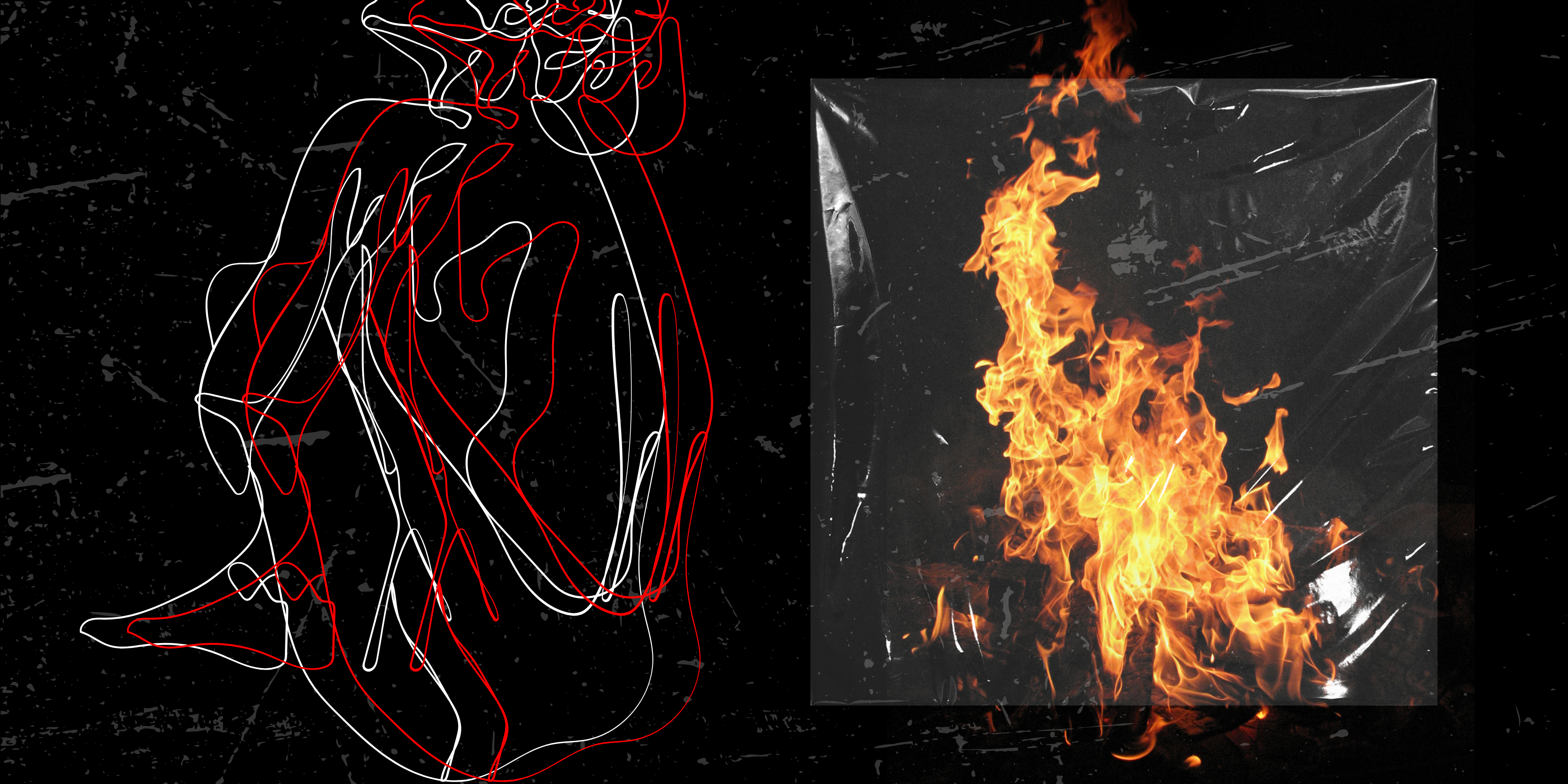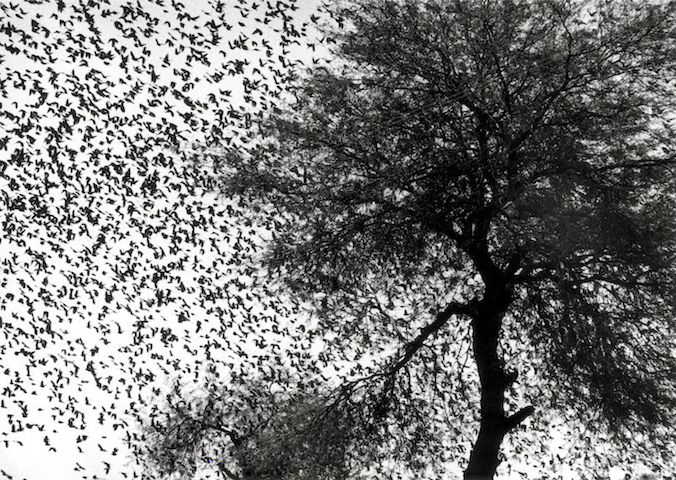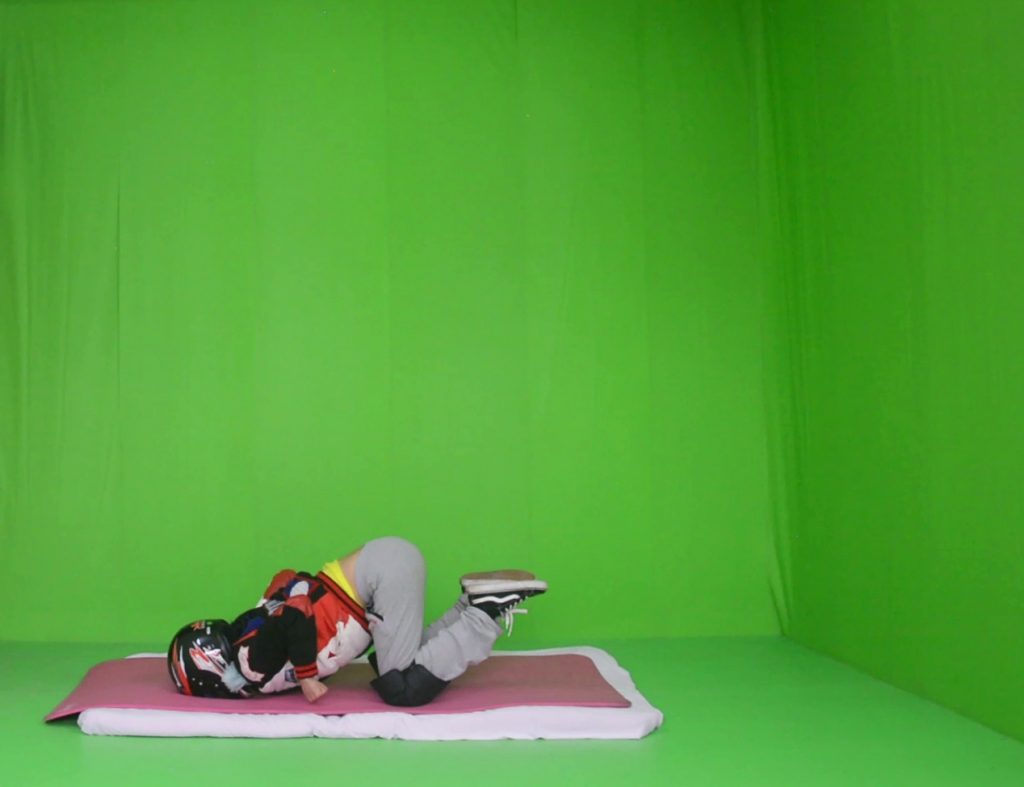This is a poem about fire.

February 21, 2023
This is a poem about fire.
“What he told his students and fellow scholars was to pay attention to the physicality of a book.” [1]
Did you know there was a “Forgotten War” in the year 1812?
Fill in the blank: “In the year 1812 _________ happened in Korea.”
This is a poem about a fire that never happened.
Handwritten: “Douglass Narrative $150,000.” [2]
In the year 1666 the early American poet Anne Bradstreet wrote “Here Follows Some Verses Upon the Burning of Our House.”
Symptoms include a sense of a foreshortened future.
Did you know there was a “Forgotten War” in the years 1950, 1951, 1952, 1953?
“Polyptoton” means repetition of words derived from the same root.
Some of us have no roots.
Here is an example of polyptoton: “The refugee was lost in a fugue state.”
Did you know there is a war being forgotten right now?
Handwritten: “Wheatley $50,000.” [3]
“It was not a penchant for reading them that sustained him, but rather a passion for collecting them.” [4]
If you don’t believe me, Google “foreshortened future.”
Answer this question: Forgotten by whom?
This is a poem about a fire that never happens in our timeline.
“It is a single collection; the books speak to each other.” [5]
Symptoms include ruptures in space and time.
Why were the American soldiers burning school chairs? I asked and my Korean father replied: Oh, that winter was so cold. There wasn’t much wood to burn. The chairs were made of wood.
Fugiō: “to flee.”
It is a single collection of timelines that speak to each other.
Did Anne Bradstreet, forced to flee her home as it was lost to fire, feel her future foreshortening?
Lines of time: strings of a musical instrument.
Symptoms include rootlessness.
What happens when you strum them?
Flee, fight, fawn, freeze.
I wonder who built those school chairs lost to fire.
“Hwabyung” in Korean means “fire illness.”
From the same root: 1950, 1951, 1952, 1953.
My father was a child at the time.
This is a poem about a fire illness.
He was part of a crowd of refugees who were forced to flee their homes.
The truth is that I fear the fire.
“Although Bradstreet embraced Petrarchism as a poetic language, she objected to the ways in which male poets used the sonnet to objectify and silence women.” [6]
Fear the fire that speaks through me when I am furious.
Handwritten: “Bradstreet $10,000.” [7]
Fill in the blank: No book is worth more than a ________.
“I’d go to a bookstore and see them stored wrongly and just feel the drama of the ‘skin’ coming off in a slow battle against the weight.” [8]
Answer this question: Are women objects?
I, too, was once a bookish child.
He “collected association copies, books owned and in most cases signed or annotated by a person of historical significance.” [9]
Symptoms include travel through time.
Who counts as a person of historical significance?
“These books have a great, sometimes huge, added value largely because of who owned them.” [10]
Who counts as a person?
This is a poem about what the Framers framed.
From the same timeline: 1953, 1978, 2000, 2018.
The fire in this poem, I assure you, is purely figurative.
“‘Let me show you now what many people consider the best book in my collection,’ he said, then laid before me a protective box containing two volumes, Narrative of the Life of Frederick Douglass, an American Slave, Written by Himself (1845), and My Bondage and My Freedom (1855), also by Douglass (1818–1825).” [11]
Who or what were the Founding Fathers?
It is a single collection; the women don’t speak.
“Here Follows Some Verses Upon the Burning,” she wrote.
Fill in the blank: There are timelines where ______ never happened.
What happens when you strum them?
The opposite of “Forgotten War” is not “Remembered Peace.”
On July 27, 1953, there was a ceasefire of some kind.
Fill in the blank: The opposite of “ceasefire” is _______.
Did you know that some Koreans fear the number four?
His favorite holiday was the Fourth of July.
Because it sounds like death.
Answer this question: Do fireworks sound to you like war?
Flee, fawn, freeze, fight.
This is a poem that will end with “ceasefire.”
From an essay in The New Yorker: “He showed me his inscribed first edition of ‘My Bondage and My Freedom’ and told me he knew all about the size of Frederick Douglass’s penis and the smallness of the vaginas of the white women with whom he had affairs. ‘Picture it,’ he said, stroking the spine of the book as he moved closer, pressing himself against me. I later learned that he’d been banned from campus.” [12]
The ceasefire in this poem, I assure you, is purely literal.
Answer this question: Why wasn’t he fired?
This is a poem about a fire that should have happened.
You will remember thinking to yourself that you cannot stay in your body.
Maybe our timeline is broken.
In the year 2000 the William Robertson Coe Professor of American Literature in the English Department at Stanford University used a rare and expensive “association copy” to violate a 22-year-old Korean American _______ named Jennie Chu. [13]
A fugue is a form of forgetting.
She remembered thinking to herself: I cannot stay in this body.
Here is another example of polyptoton: “The origin of my dissociation: an association copy.”
The book was covered with waste sheets from an 18th-century pornographic novel. [14]
She could not stay in that body.
Forgotten by whom?
The truth is that I used to love books.
Sociare: “to join.”
The origin of my dissociation: an association copy.
Answer this question: Why?
A dissociative fugue is when the self flees and seeks refuge elsewhere.
It was during my slow, nearsighted discovery of the pornographic content of the waste sheets that, against my will, I became closely associated, literally and figuratively, to the William Robertson Coe Professor of American Literature in the English Department at Stanford University.
What is the opposite of “to join”?
By “closely” I mean “forcibly.”
I cannot stay in this body.
The pornographic waste sheets covered “Barbarities of the Enemy,” a book-length “compilation of reports gathered for an investigation into the barbarities (and this is the correct word to use) committed by the Foul and Most Foreign English upon the Brave and most Virtuous Citizens of the United States” during the “Forgotten War” of 1812. [15]
Why couldn’t I stay in my body?
From “Barbarities of the Enemy”: “Her story was too shocking in its details to meet the publick eye.” [16]
Fight, freeze, fawn, flee.
Where did I go?
From “Barbarities of the Enemy”: “she discovered every thing which her convulsive struggles, between shame and a desire to expose her brutal assailants, would permit.” [17]
My ancestors dissociated so that their descendants would re-live.
According to Stanford’s general counsel, I must have been sent into a state of shock so severe that I dissociated while being forced to watch the “porno video” that she mentions in her summary of the report—the “porno video” that I do not remember watching at all. [18]
The opposite of “to join” is “to fall apart.”
“No, you were not drugged,” she told me in 2018. “You must have been traumatized. But you were not drugged.” [19]
Hwabyung is when fire ignites generations of han.
“But how can I believe you?” I asked, and she replied, “You’ll just have to trust me.”
Han I reclaim.
“Stanford acquires late professor’s renowned collection of ‘association copies.’” [20]
What if hwabyung is not an illness at all?
Han I reclaim and redefine as my Korean American response to injustice.
“. . . a collection of remarkable copies of texts ranging from America’s Colonial period up through the Civil War . . .” [21]
Here is another example of polyptoton: “Our pathos was not pathological.”
What if the fire of hwabyung is necessary?
“. . . one of the most important examples of its kind in the world, and would surely become a magnet to scholars, from diverse disciplines, for generations to come . . . ” [22]
Fill in the blank: “When in the course of human events __________.”
The model minority left my body, like a ghost.
“. . . one of the most impressive book collections likely to be put up for sale in our time.” [23]
And what replaced the ghost was fire.
Hwabyung I reclaim and redefine as a cathartic way of experiencing political agency and creative power.
“The price of the collection is confidential.” [24]
Answer this question: Who funded the collection of rare books?
The Forgotten War of 1812 rhymes with the Forgotten War of 1950.
“. . . suspended for two years without pay.” [25]
Did you know there is a “Forgotten War” happening right now?
Listen as the fire becomes a voice.
Forgotten by whom?
The silence of Japan rhymes with the silence of Stanford English.
From “Barbarities of the Enemy”: “women will never publish what they consider their own shame.” [26]
Fire annihilates, fire purifies, fire lights the dark, fire heats the cold.
The shame is not mine.
In the year 2018 a Korean American rape survivor named Seo-Young Chu visited the library in person, held that same book in her hands, and somehow did not uproot the pages from the book’s spine.
F is for “futile.” F is for “failure.”
And I remembered the _____ that could not be forgotten.
The failure was not mine.
“Why didn’t you uproot the pages from the book’s spine?” someone asked.
Childhood memory: My Korean father pulls textbooks from a showcase bookshelf in an American furniture store.
Listen. I am trying to answer.
Books (not even for sale) in a model furniture showroom: more important to him than the furniture he came here to buy with his family.
Should I have uprooted the pages from the book’s spine?
My Korean father leaves the store having bought zero furniture and all the books he could find.
Handwritten: “Madison Jefferson Copy Paradise Lost $150,000.” [27]
Books on math, books on grammar.
In the car, in the parking lot outside the furniture store, his Korean wife is embarrassed, hurt, livid. His Korean American children are silent, confused. But he is unapologetic.
Fill in the blank: “Seo-Young Chu $________.”
His children will receive the best possible American education.
“The dehumanizing effect of their Petrarchan verse, which objectifies women and converts them into silent, absent, unknowable figures, was recently described to early Americanist readers by Seo-Young Chu, who recounts her rape at the hands of an academic adviser.” [28]
What does it take to remember a Forgotten Rape?
In the year 2021 a Korean American survivor named Seo-Young Chu asked Stanford yet again to rename the library and engage in restorative dialogue with her. [29]
Fire heats the cold, fire purifies.
And in the year 2021 Stanford made the library disappear.
What happened to his “renowned collection” of rare and expensive books?
The library “no longer exists,” they said. [30]
Dear Stanford: It should never have come to this. [31]
Fire annihilates, fire lights the dark.
Answer the question: What happened to the book that raped me?
“The gaps in my CV are trauma-generated plot holes that lead to Northern California in the year 2000.” [32]
Answer the question: Why wasn’t he fired long ago?
This is a poem that needs to exist.
Dear Stanford: The fire is speaking. Listen.
This is a poem about fire.
“. . . body stripped of its parts, to be cataloged as a series of rare and beautiful objects . . .” [33]
Buried somewhere on “The Farm”: a recording of a 22-year-old Korean American woman’s voice saying “No.”
I light the dark, I purify.
This is a poem about a fire that happens in another timeline.
I annihilate, I heat the cold.
In this poem, the daughter of an orphan of the Korean War infiltrates Green Library’s Special Collections at Stanford University and sets fire to the book that raped her.
The fire in this poem, I assure you, is purely figurative.
In this poem, I turn his book to ash.
This is a poem that was written by the fire.
I am the fire that wrote the poem you’re reading.
This is a poem about a fire that never happens in our timeline.
I am the fire that turned his library, his legacy, to ash.
This is a poem that will end with “ceasefire.”
Let this poem end in ceasefire, ceasefire, ceasefire, ceasefire.
NOTES
[1] Haven.
[2] “Jay’s Estimates.”
[3] Ibid.
[4] Haven.
[5] Ibid.
[6] Hutchins, 623.
[7] “Jay’s Estimates.”
[8] Quoted in Haven.
[9] “Memorial Resolution.”
[10] Haven.
[11] Basbanes, 146-7.
[12] Lepore. To see a screenshot of the relevant passage, click on the link under “Jay’s Estimates 6/6/07.”
[13] My first-person experience.
[14] The novel: Fanny Hill: Memoirs of a Woman of Pleasure (1749) by John Cleland. To see a photograph of the waste sheets that I took during a February 2018 visit to what was then called the Jay Fliegelman Library, click on the link under “Jay’s Estimates 6/6/07.”
[15] This association copy existed when I held it in my hands during a 2018 visit. I can no longer find records of its existence. To see photographs of the association copy that I took during a February 2018 visit to what was then called the Jay Fliegelman Library, click on the link under “Jay’s Estimates 6/6/07.”
[16] 117.
[17] Ibid.
[19] From the notes I took immediately after my meeting with Stanford’s general counsel.
[20] Haven.
[21] “Memorial Resolution.”
[22] Haven.
[23] Ibid.
[24] Ibid.
[25] Wang.
[26] 118.
[27] “Jay’s Estimates.”
[28] Hutchins, 625.
[29] Ehsan, Hsieh, Zheng.
[30] Ibid.
[31] Chu.
[32] Ibid.
[33] Van Duyne.
SOURCES
“Barbarities of the Enemy, exposed in a report of the Committee of the House of Representatives of the United States, appointed to enquire into the spirit and manner in which the war [the forgotten war of 1812] has been waged by the enemy, and the documents accompanying said report.” Printed at Worcester, by Isaac Sturtevant, 1814.
Basbanes, Nicholas. Patience and Fortitude. Harper Perennial, 2003.
Bradstreet, Anne. “Verses upon the Burning of Our House, July 10, 1666.” Poetry Foundation.
Chu, Seo-Young. “Dear Stanford: You must reckon with your history of sexual violence.” The Stanford Daily. July 12, 2022.
___________. First-Person Experience. In progress.
Ehsan, Cameron, Victoria Hsieh and Kathryn Zheng. “Stanford removes library collection, brick honoring affiliates accused of sexual misconduct.” The Stanford Daily. July 9, 2021.
Haven, Cynthia. “Stanford acquires late professor’s renowned collection of ‘association copies.’” Stanford Report, March 12, 2008.
Hutchins, Zach. “The ‘Raping Numbers’ of Bradstreet’s Admirers.” Early American Literature. Vol. 55, No. 3 (2020), pp. 623-650. Stable URL:
“Jay’s Estimates 6/6/07.” Photograph taken by Seo-Young Chu during a February 2018 visit to the Jay Fliegelman Library at Stanford University.
Lepore, Jill. “The Lingering of Loss.” The New Yorker. July 2019.
“Memorial Resolution: Jay Fliegelman (1949-2007).” Stanford Report. April 2008.
Tsai, Alex. “Provost, General Counsel offer personal contributions to anti-sexual assault organization after Stanford denies Fliegelman victim’s request for donation.” The Stanford Daily. February 26, 2018.
Van Duyne, Emily. “The Impossible, Crucial Task of Teaching About Rape as a Survivor.” Literary Hub. April 18, 2022.
Wang, Kyle. “Stanford One Year After #MeToo: How Stanford’s Response Failed Victims of Sexual Assault.” Stanford Politics. June 2019.
Zumwalt, Debra. Letter to Seo-Young Chu. November 27, 2017.



